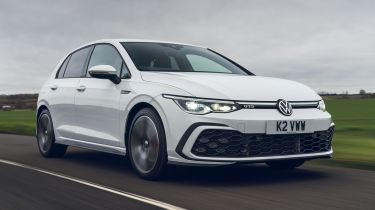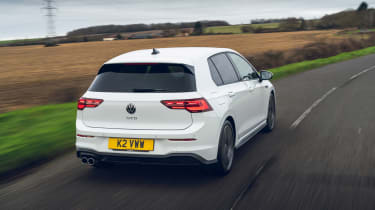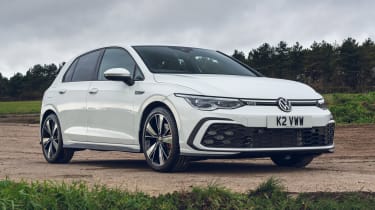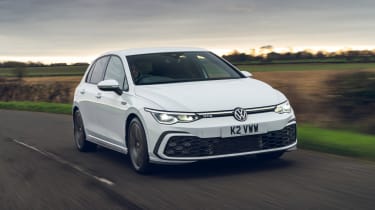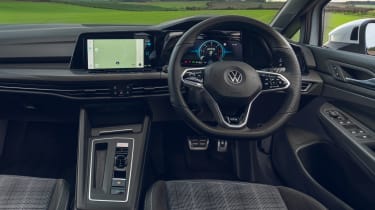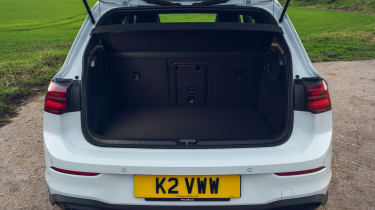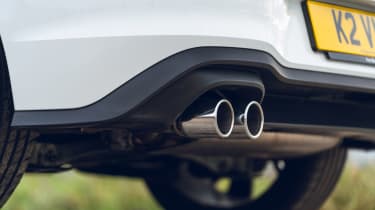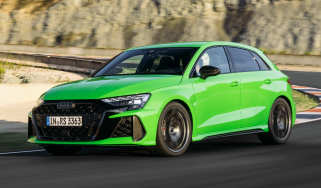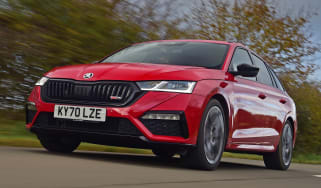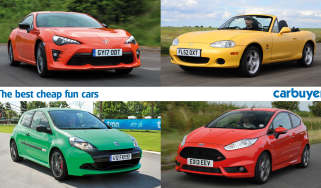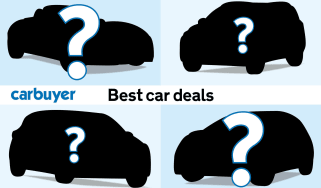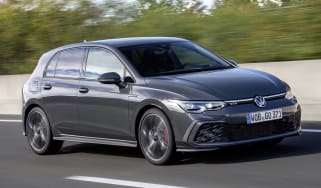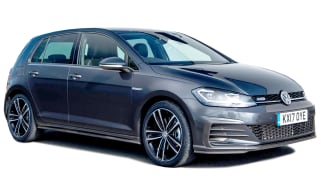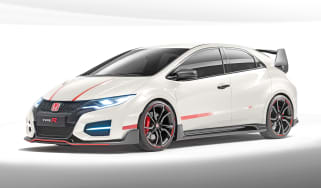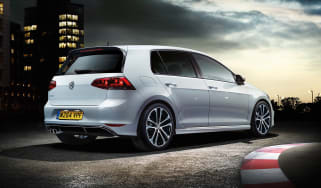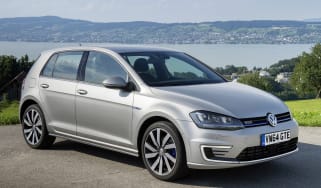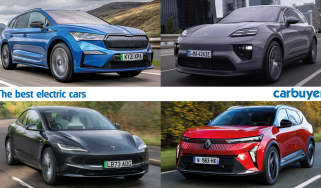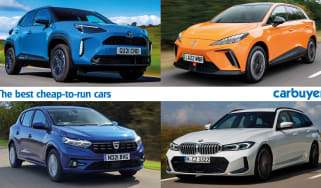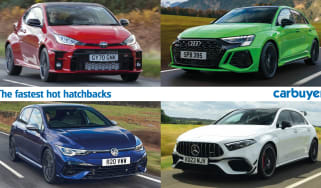Volkswagen Golf GTD hatchback review
The Volkswagen Golf GTD is a superb all-rounder but the perks of owning a diesel are fading fast
Pros
- Desirable
- Potent engine
- Easy to live with
Cons
- Expensive
- High BiK tax
- GTI is more fun
When diesel sales boomed, the Volkswagen Golf GTD became a very popular alternative to the GTI, with virtually identical styling but a major advantage when it came to running costs. Now the tables have turned against diesel, and tax rates means most company-car drivers will have their eyes on the plug-in hybrid GTE instead.
Is there still a place for the GTD? Perhaps if you do lots of miles, as this is when diesel engines still make the most sense, often providing fuel economy of more than 50mpg and a long range. If you do fewer than 12,000 miles a year or so, the petrol-powered GTI is more fun and shouldn't prove much more expensive to run.
 Top 10 best hot hatchbacks 2024
Top 10 best hot hatchbacks 2024
In keeping with tradition, the GTD gets almost the same interior and exterior upgrades as the GTI but aficionados will be able to spot the GTD's twin exhausts on one side of the rear bumper, rather than the dual exhausts fitted at either side on the GTI. The GTD also gets model-specific 18-inch alloy wheels and its cloth seats have grey tartan inserts. There's also an attractive sports steering wheel and more exciting graphics for the digital instruments.
The engine is a new 2.0-litre diesel with 197bhp and 400Nm of torque, giving the GTD 10bhp more than the Focus ST diesel and the feel of a car with a bigger engine. Squeeze the throttle and it will squeeze your kidneys as the GTD picks up speed with real conviction. We'd go for the Dynamic Chassis Control upgrade because adjustable suspension suits the Golf's character, allowing it to handle with real precision without upsetting ride quality too much. Its official fuel-efficiency figure is up to 54.3mpg, compared with around 38mpg for the GTI.
As you'd expect, the Golf GTD is still a very competent all-rounder, but where it once offered big savings for business, and even some private buyers, shifting rules around taxation means that's no longer the case. It's a good car but unless you have a high annual mileage, it makes more sense to go for the GTI instead and have even more fun.
MPG, running costs & CO2
British drivers have largely fallen out of love with diesel but for now at least, it still has its uses. For the GTD that means high-mileage drivers; unless you're racking up serious motorway miles, the petrol GTI makes more sense.
More reviews
Car trim reviews
In-depth reviews
- Volkswagen Golf R review – the ultimate Golf
- Volkswagen Golf review - almost perfect family hatchback
- Volkswagen Golf R estate review
Used car reviews
Where the GTD scores big is its official fuel economy of up to 54.3mpg, which easily beats the 38.2mpg figure of the GTI. Drive gently on the motorway and 60mpg+ is within reach without too much effort. Not only does this save you some money over time, it also means you don’t have to stop for fuel so often, which is good on long journeys. Drive in a more spirited fashion on more varied roads and fuel economy will slip into the 40s.
One area where the GTD's advantage has diminished, however, is for company-car drivers. The government's decision to steer people away from diesel means it sits in a far higher Benefit-in-Kind band than the plug-in hybrid GTE, which is now the pick for business drivers thanks to its low CO2 emissions.
It's worth checking if insurance is affordable, as the GTD's performance means it sits in group 27 out of 50, which is fairly high for a family hatchback. The petrol Golf GTI is just one group higher.
Engines, drive & performance
Volkswagen's latest 2.0-litre turbodiesel GTD engine gets 197bhp, which is more than ever before. The headline figure of 400Nm of torque is arguably even more important though, coming in from just 1,750rpm. It's this that you can feel pushing you back into the seat under acceleration, and what makes the GTD feel so punchy when driving out of corners or overtaking slower traffic.
Even its 0-62mph sprint time of 7.1 seconds is pretty quick for a front-wheel drive diesel, helped by the standard seven-speed DSG automatic rifling through gears at an impressive rate. It's half-a-second faster to 62mph than the Focus ST diesel but its power band is much narrower than the GTI's petrol engine, so there's little point revving it beyond 3,500rpm.
Along a B road, the GTD is good fun, with excellent body control and impressive traction thanks to Volkswagen's XDS electronic differential lock, which is designed to stop the car from spinning either of its front wheels. We recommend spending the extra £800 for Dynamic Chassis Control because this adds sophisticated adjustable suspension that can improve handling without ruining the Golf's ride quality. Its Individual mode is excellent, allowing the feel of the engine and gearbox, steering and suspension to be set up separately. This is better than Sport mode, where the already somewhat numb steering takes on too much weight and an artificial engine sound is pumped through the speakers. While the Focus ST's steering is more feelsome, the whole car also has a firmer edge than the Golf, which won't suit everyone.
Interior & comfort
The Golf GTD is based on the R-Line model but with quite a few extras to make it feel more special. Volkswagen certainly isn't breaking the mould here, with upgrades like sports seats trimmed in 'Jacara Grey' tartan cloth all an evolution of what's become a GTD tradition. There are black and chrome interior trim inserts and a sports steering wheel, which is also heated and fitted with the latest capacitive touch-sensitive controls and GTD logo. A set of 18-inch 'Bakersfield' alloy wheels are fitted at each corner and there's a GTD body styling kit with twin exhausts on the passenger side.
We've already discussed the Mk8 Golf's interior at length and here it comes with the range-topping Discover Navigation system and two 10-inch touchscreen displays; one behind the steering wheel and another perched above the dashboard. Buyers get a different instrument display for the GTD, with a more exciting look than the standard Golf, and it's possible to use Android Auto or wireless Apple CarPlay, which is handy because the onboard infotainment software isn't always the most intuitive. It's also disappointing that a car costing more than £30,000 requires you to spend more if you want heated seats, a rear-view camera or head-up display.
Practicality & boot space
No matter what model you bought, the Golf has always been a practical car, making it incredibly easy to live with. That's even more the case now the three-door version has been phased out, so there's no more asking passengers to clamber into the back seats. It's easy to get in or fit a child seat, making the GTD ideal for family life.
The sports seats make it slightly more difficult to get in the front, but once you’re in they offer great support. The driving position is highly adjustable too, so it should be possible for almost any driver to get comfortable behind the wheel.
Measuring 381 litres, there's no penalty in boot size for picking the GTD versus any other Golf, so there's plenty of space for shopping or even road trips. It's almost evenly matched with the Focus ST, beating the fast Ford by just six litres. The rear seats can also be flipped forwards to create extra cargo room but they don't lie completely flat.
Reliability & safety
We'll have to wait for the Mk8 Golf to appear in our next Driver Power owner satisfaction survey but the previous model came a respectable 50th out of the top 75 models in 2020. This is good to know, as a large proportion of the Mk8's underpinnings are an evolution of the previous model's hardware. If there are more problems with the new model, they're likely to be attributed to the more prolific use of electronics in its digital interior.
Safety shouldn't be of any concern, as the Volkswagen Golf has already scored a five-star result from Euro NCAP. It features a longer list of safety equipment than ever, including LED Matrix headlights, lane assist that can detect the edge of the road, blind spot warnings and Emergency Assist, which can bring the car to a safe stop if sensors detect that the driver is incapacitated.

